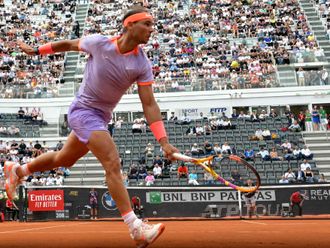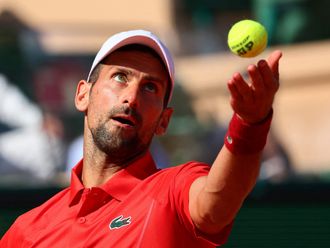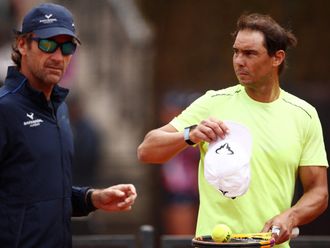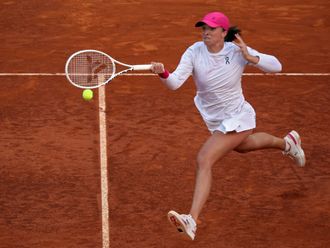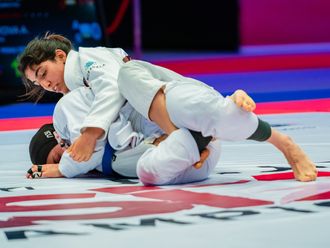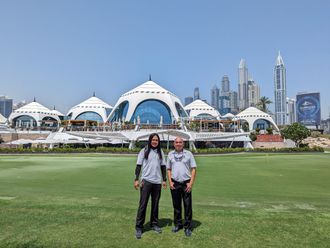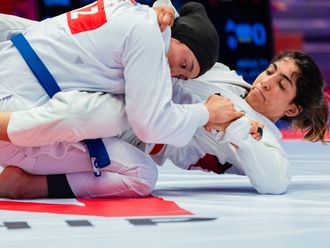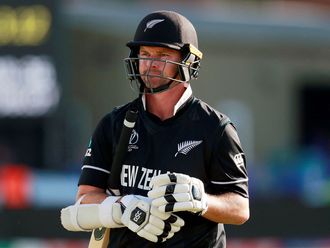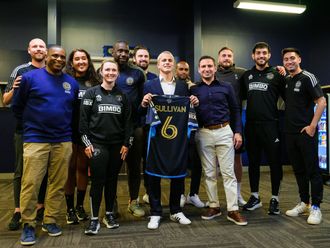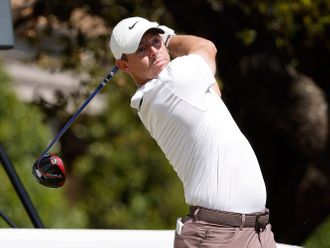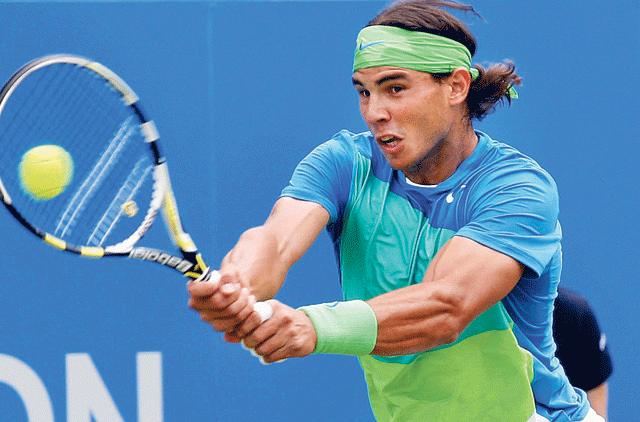
London: No matter where Rafael Nadal goes at Queen's Club, there seems to be no hiding place for the popular Spaniard.
His troublesome knees denied British fans a chance to see Nadal in full flow last year as he ducked out of defending his titles at Queen's and Wimbledon.
Twelve months on and it seems that from the moment Nadal steps out of his silver courtesy car at Queen's, he has a large group of fans snapping at his heels.
Rewarded
Children are rewarded for their patience with a pat on their heads and in case the seven-times grand slam champion had any doubts about his skills on the tennis court, one little voice told him: "You're so good."
The Pied Piper of Queen's Club flashed his teeth at the observation but away from the crowd, the smile disappeared as he grumbled about the prolonged hardcourt season after making a winning comeback at Queen's on Wednesday.
"For me, the worst surface is hardcourt; not grass, not clay. Hardcourt is very difficult, is very, very aggressive for the ankles, for the knees, for the back, for everything," said the world number one, who was also forced to retire injured during his Australian Open quarter-final this year.
Unfortunately for Nadal, apart from the two-month clay court swing which culminates with the French Open and the four-week run of grass court tournaments, the rest of the tennis calendar is predominantly made up of hard court events.
Since maintaining hard surfaces is more cost-effective than clay and grass courts — which is why both the Australian and US Open ditched the green lawn from their venues — it is unlikely Nadal's observation will carry any weight.
Big mistake
"Seems like tennis is always moving to play more and more in these kind of [hard] surfaces but my feeling is it's always a big mistake because the grass is soft, the clay is soft, and the movements are more natural," said Nadal, who in 2008 became the first man since Bjorn Borg in 1980 to complete the French Open-Wimbledon double.
"On hard you [play] all the time very aggressive. That's bad for the knees and for the ankles, for everything. I feel it worse when I play on hard and than the rest of the surfaces."


